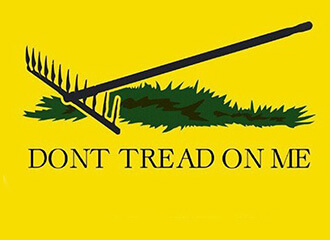На русском языке:
Мнение. Егор Лебедок о Беларуси как зоне эскалации между Западом, Украиной и Россией
На беларускай мове:
Меркаванне. Ягор Лебядок пра Беларусь як зону эскалацыі паміж Захадам, Украінай і Расіяй
Columnist Yahor Lebiadok wrote a post in his Telegram channel about how the aggravation of the situation at the border of Belarus can turn the country from a «security donor» into a zone of constant escalation between the West, Ukraine and Russia. Here are his words unchanged.
During the entire period of the crisis with migrants at the Belarusian border, NATO’s assistance to Poland, Lithuania and Latvia consisted only in sending a small special group to Lithuania to counter hybrid threats (not armed soldiers, but analysts, etc.), as well as expressing concerns. It is this frankly insignificant approach that Polish Prime Minister Morawiecki is not satisfied with, who wants to initiate Article 4 of the NATO Treaty: «Since it is no longer enough for us to only publicly express our concerns. Now we need concrete steps and the intervention of the entire Alliance». Article 4 of the NATO Treaty states that «the Contracting Parties shall always consult each other in the event that, in the opinion of any of them, the territorial integrity, political independence or security of any of the Contracting Parties are threatened». In fact, this is an attempt by Poland, as well as Lithuania and Latvia, to bring the dialogue with NATO countries to a new, more significant and substantive level.
However, I suppose that in the near future the conflict will be resolved in the political field through the European Union as a humanitarian, but not as a military or «hybrid». That is, without the involvement of NATO, at least not at a serious level or not now.
Once Lukashenka tried to present Belarus as a donor of security. Now he has turned it into a source of danger. Trying to force the EU into dialogue and recognition of his authority in Belarus may now have a different effect. Weak NATO assistance and an inadequate response from the EU to the current crisis have stimulated the need for an independent non-aligned build-up of defense measures in the countries bordering Belarus. Poland has moved troops to our borders, Latvia is conducting exercises and training forces, Lithuania has not particularly weakened the reinforcement, Ukraine is taking measures to ensure border security, pulling up troops and strengthening territorial defense, and Estonians are preparing measures to counter a similar crisis on the border with Russia.
Since Russia stands behind the «back» of Belarus, the Baltic states and Poland understand that single measures may be not enough to ensure their security. And in light of the weak speed, NATO is considering the next step – consolidation and military cooperation among the Baltic States, Poland and Ukraine. It is unlikely that this factor was taken into account in the policy of escalation to force the EU into dialogue, since the actions of these countries are dictated by the will of politicians, based on the goal of rapid security, outside the common policy of the EU and the European bureaucracy. That is, even Lukashenka’s dialogue with the EU won’t stop the strengthening of defense measures in these countries and interest in consolidated actions in the field of security (i.e. good conditions are being created for the formation of the Baltic-Black Sea military alliance, without Belarus, of course).
Thus, Belarus receives an increased military presence from all sides. This will stimulate the thinking of Lukashenka, his supporters in power and the rhetoric of Belarusian propaganda in the spirit of hostility of the West and plans to seize Belarus, as well as force them to take some kind of retaliatory measures to this (and further it goes round). Lukashenka doesn’t have many resources for the latter: it won’t be possible to block gas, redirect commodity flows and block the transport corridor, because this will involve third countries in the conflict. Therefore, the answer may be either a series of relatively small incidents (primarily straightforward force, including a kind of application of international law and legislation), or the strengthening of the Russian military component on the territory of Belarus, which we are observing. Thus, Belarus from a «security donor» can turn into a zone of constant escalation between the West, Ukraine and Russia, and this will be used outside the interests of Belarus and even Lukashenka himself.


